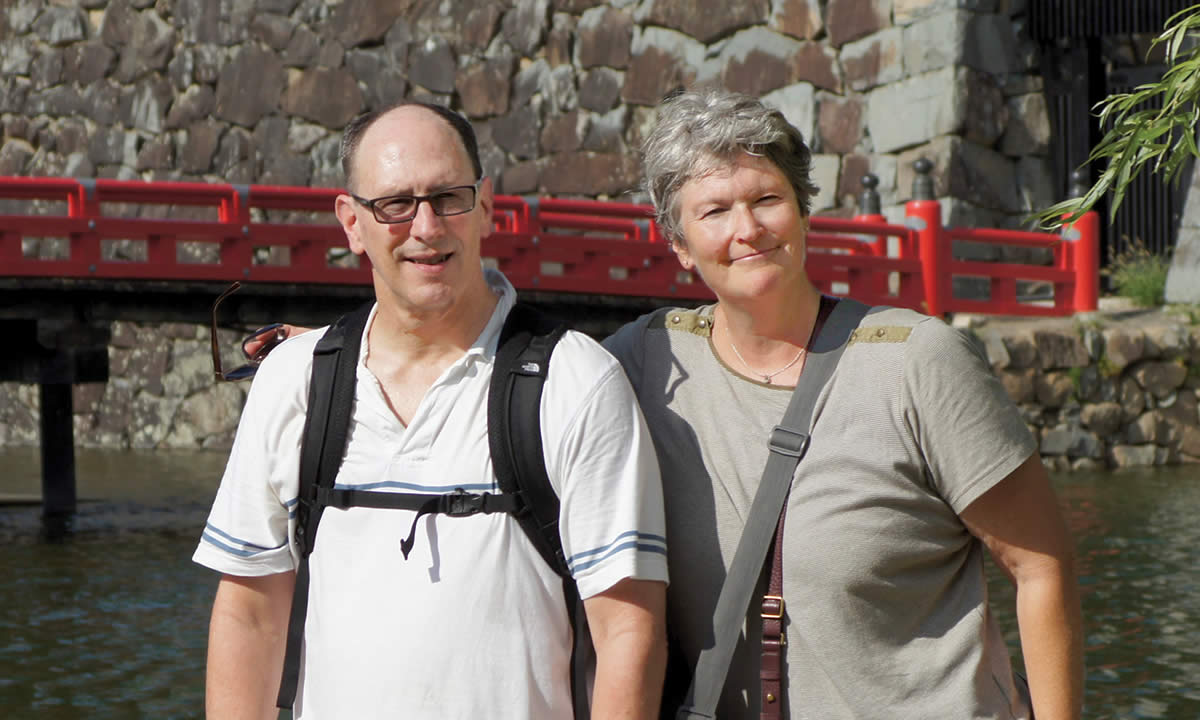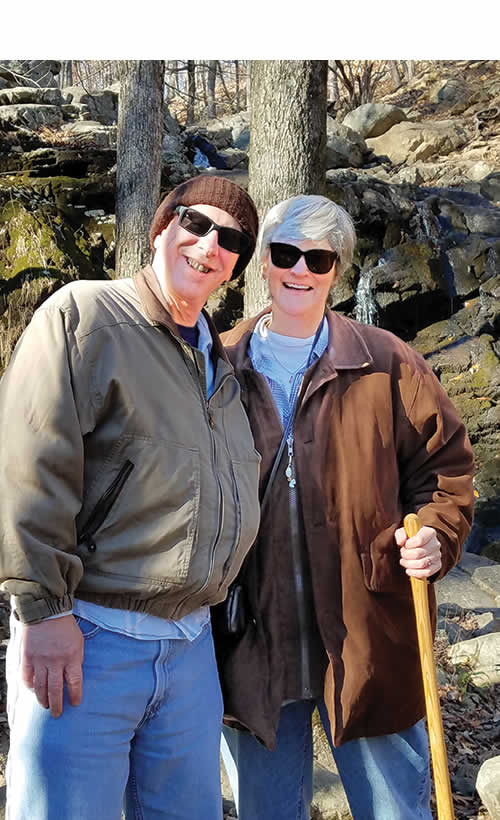
Concordia Seminary Newsroom
Christian stewardship a priority
Fathers’ deaths spotlight need, opportunity to train future pastors

By Kim Plummer Krull
The deaths of their fathers within a week of each other in 2014 opened Kathryn and Dana Foat’s eyes to the importance of estate planning, something many people ignore. When they added up their own assets, they realized they had more than they thought.
Because both their fathers had estate plans, their children clearly understood how the men wanted their resources distributed.
“Instead of a burden of responsibility, we felt relief that we had their guidance,” Kathryn Foat said. “That made things a little easier.”
That guidance from their fathers — faithful Christians who had long modeled stewardship — prompted the Foats, members of The Lutheran Church of St. Andrew in Silver Spring, Md., to update their will. We recently sat down with Dana, now 57 and a manager with a 37-year career with the U.S. Department of Defense, and Kathryn, now 56 and a former science educator, and talked about Christian stewardship and their support of Concordia Seminary.
How did you get involved with the Seminary?
“Our parents modeled the importance of supporting the church with their time and financial resources. A member of Kathryn’s home congregation decided to become a pastor as a second career. That focused Kathryn’s parents’ giving to meet the needs of the future church. They began supporting Seminary students to help meet the financial burden of education.”
Why is the preparation of pastors and church leaders that Concordia Seminary provides important to you now?
“We have had and continue to have strong relationships with our pastors. Not like friends, but as a religious leader to his congregants, a trusted resource for guidance for our spiritual health. Lay leaders are wonderful resources — and we have served as lay leaders — but formal ministerial preparation adds an element of leadership and depth of knowledge.”
What did you learn through updating your will that made estate planning even more important?
“We’ve been blessed and have always tried to be good stewards with our blessings. We had an estate plan, but if we were to die today in a car crash, we wanted decisions about how our estate should be handled to reflect the resources available now versus if we were much older and used those resources for our care. We chose six organizations that have been highly influential in our lives and that we want to be there for others going forward. We wanted to support the church of the future and a planned gift to Concordia Seminary allows us to do that.”
Can you share a bit more on why you included the Seminary in your will?

“We support our current church and pastors, but know that not every church is blessed with its own pastor. We’ve lived in communities where the church had difficulty filling a pastoral vacancy. Kathryn grew up in Nebraska, where congregations shared a pastor. When we lived in Pittsburgh, Penn., we had to travel a fair distance, including crossing a river, to find a Lutheran Church—Missouri Synod church with a pastor.”
How do you hope your gift to the Seminary through your estate plan will make a difference?
“We want the church to evolve and grow in a changing world. To do this, professional preparation for church staff also must adapt. We love our Lutheran theology. We look forward to going to church and knowing every Sunday the Gospel will be preached and where we will be in the lectionary. We love knowing that we’re part of God’s family by what is preached. But as we become older adults, we see how the church must connect with the next generation. Kathryn grew up going to church every Wednesday and Saturday, but that’s not what works with most people today. We think of the young pastor at a church where we’ve worshiped in Florida, with his iPad and hockey jersey. That church was filled with young families and kids! It was cool to see him making a connection, communicating in ways that relate to young people all the while being scripturally based and theologically strong.”
What would you tell fellow Christians who say they know they should have an estate plan but lack the time to put one together or dislike thinking about death?
“We’ve had those conversations with friends. When we lost our fathers, we realized the decisions you need to make if you want others to understand what you want them to do with your resources. It was good to sit down and determine that, at different stages of your life, estate planning is a process. We know we can always update it, but we have peace of mind knowing our will is in place.”
To learn more about creating a Christian estate plan, visit the Seminary’s website at www.csl.edu/support, or contact Seminary Advancement at [email protected] or 800-822-5287.
Kim Plummer Krull is a St. Louis-based freelance writer.